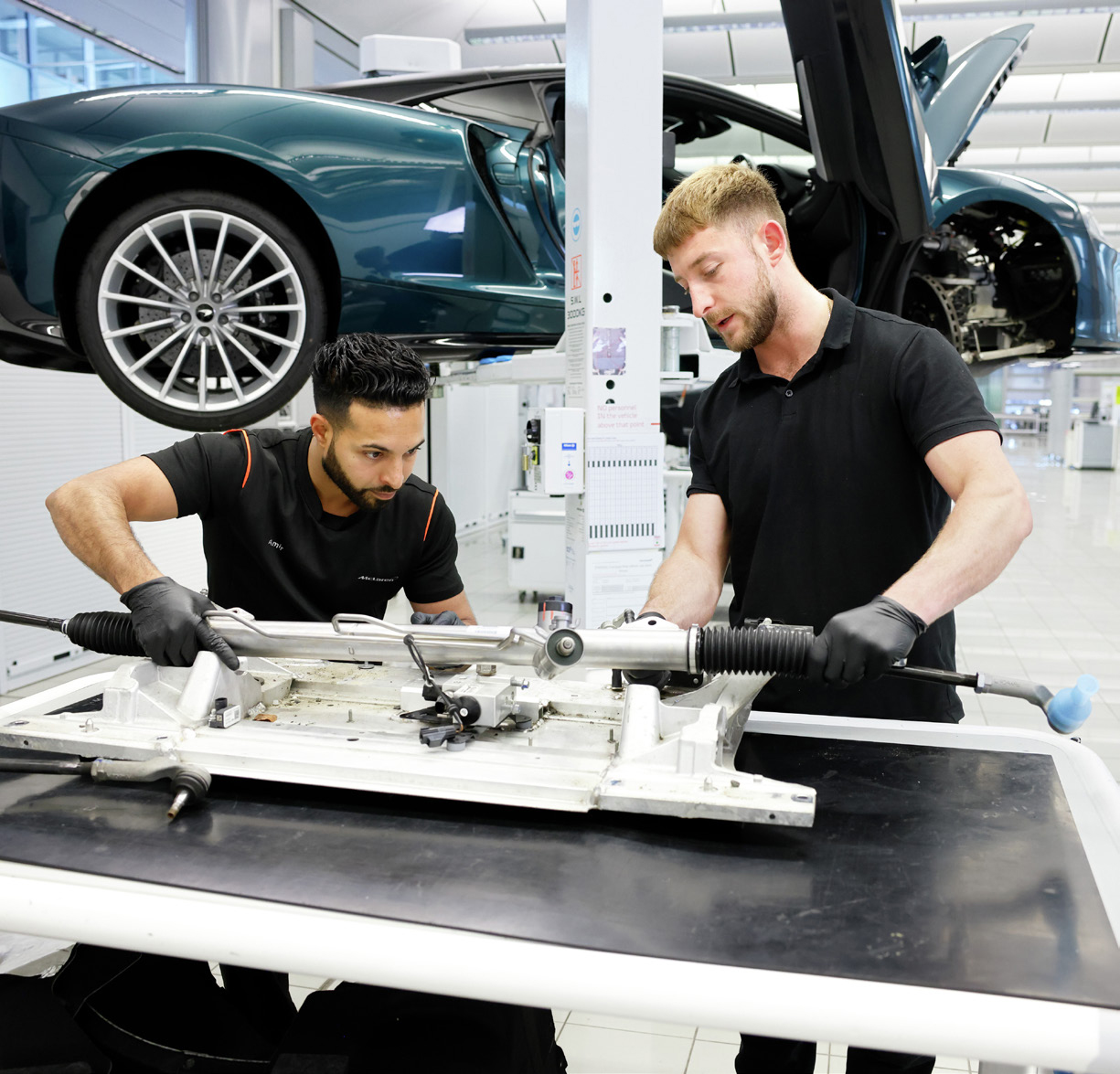FST JOURNAL
The Skills Gap
DOI: https://www.doi.org/10.53289/DQTE7420
Broadening our search for tomorrow’s engineers
Ella Podmore

Ella Podmore MBE is a senior materials engineer working for McLaren Automotive. She is responsible for all materials-related investigations across all projects of the business, specialising in surface treatments and microscopic metallic analysis. During her time at McLaren, she has won IET’s Young Woman Engineer of the Year 2020, been named in Surrey’s Top 40 Under 40 in 2022 and more recently received an MBE for contributions to engineering, innovation and diversity.
I want to reflect on my journey and the skills that have got me to where I am today. My journey started with university. I completed a four-year Masters in Materials Science at Manchester. It was during that university degree that I had an industrial placement and I think that was the pivotal part of my education.
That placement gave me a purpose. I picked up so many things in terms of professional interaction, but was also able to understand what made a company tick. It gave me a topic to focus my thesis on, which was later published and allowed me to get the job offer and role at McLaren. Understanding what is going on in a business is only really possible by immersing yourself in that particular type of experience. That is why I am such an advocate for this type of opportunity.
McLaren offered me the position of materials engineer. They did not have a materials division at that time. The engineering focus was mainly mechanical and automotive. Today, it is important that industry looks further than just the traditional routes and talent pools. Embracing the worlds of materials scientists, coders and software programmers is going to be essential for the future of UK manufacturing, especially if we want to compete with the tech giants and startups for the best new talent.
Life skills
Yet it was not the studies or even the exam results that have been most impactful on my journey. I would have to say that it was the softer skills – perhaps ‘life skills’ is a better term – that I have acquired. These are the things that I will carry with me throughout my career.
 McClaren offers an extensive technical training programme as well as mentoring support to its employees.
McClaren offers an extensive technical training programme as well as mentoring support to its employees.
As a STEM Ambassador, I frequently visit schools and colleges, talking to students with the aim of convincing some of them to consider science, technology, engineering or maths as an option. My life skills often come into play there as well. What I have taken away from going to schools and colleges are two main insights. The first is the importance of visualisation. This has been a really important element in my journey too. It is so important for students to pick up on. How does a particular career choice relate to their everyday lives? Can they picture themselves getting in a particular job or a particular industry?
We must shed the stereotype that only those in the top set for maths can become engineers, there are so many more routes into a rewarding career than that. I see visualisation, the ability to see oneself in a particular role or industry, as a key asset in pursuing a career path.
Parents
The second insight relates to parents – and specifically the education of parents. I do a great deal of work directly with students, but also with teachers and professors. I see how influential they are – I know how important they have been to my particular career pathway – but the role of parents is key. We must change the perceptions of parents and their aspirations for their children’s future. We need to move them on from thinking that only university degrees can get their children into engineering or scientific companies, or that to get onto that pathway they must achieve straight As in school.
In order to move forward as an industry and a country, we need to broaden and diversify our workforce. We also need to diversify our workforce in order to get a diversification of product. So as we look forward to what the UK manufacturing scene can be in the future, and I obviously talk on behalf of the automotive industry, I am excited to talk about ways to give young people that sense of purpose, resilience, creative thinking, outside of the classroom – in fact, the life skills that have been so influential to my career.
McLaren works with a wide range of groups and organisations, seeking out the skills we are looking for, in particular software and coding which will be so important for the automotive industry. Yet there is always more to do. Being close to London, we are already competing with tech giants and startups for new employees.
Interestingly, those companies are often already considering life skills in their application processes. The automotive industry is still focusing on formal qualifications: that degree and those particular grades. Yet, although my application dealt with educational background, my interview was concerned with questions like: How would you handle conflict? If you were managing a sports team and a star player was off sick, how would you maintain team morale? So, while the tech industries are picking up on these personality traits in their applications procedures, we need to change ours to match.
Diversification is vital for the automotive industry in other areas as well, such as the transition to net zero, decarbonising society and moving to autonomous technology. Mechanical engineers will not provide the diversity we will need to deliver all the new products and technologies in a rapidly changing world. We will have to target skill sets rather than just educational grades.
Changing the narrative
As an industry, we can certainly address any technical skills gaps. The challenge is to change the narrative when talking with students and children. The key message to our aspiring scientists and technologists is that they do not have to be the most talented person in their maths set in order to get into engineering or science.
It is also important to recognise the contributions that individuals can make, whether it be by signing up employees (or yourselves) as STEM ambassadors if you are working for a technology firm, or if you are part of the education system, by reaching out to local STEM ambassadors. That kind of engagement can make such an impact on the potential scientists and engineers of tomorrow.
